 Think back to that U is for Unique the advice you received before you delivered your very first presentation. Your supervisor probably said; “There is nothing to it. Just get up there and be yourself.” That was actually pretty good advice, but you might have discounted it because it sounded so obvious, and because it seemed so difficult to be yourself when you were probably shaking and wondering “Who am I, and what makes me think I can deliver a presentation?”
Think back to that U is for Unique the advice you received before you delivered your very first presentation. Your supervisor probably said; “There is nothing to it. Just get up there and be yourself.” That was actually pretty good advice, but you might have discounted it because it sounded so obvious, and because it seemed so difficult to be yourself when you were probably shaking and wondering “Who am I, and what makes me think I can deliver a presentation?”
Since then you have learned a lot about presenting. You know how to create eye-catching slides. You know how to take a breath when you feel nervous, and how to speak even when your heart is racing. But did you ever learn how to be your own, special, u is for unique self when you speak?
Each of us wants to be amazing, motivating, and inspiring to our audiences. But when we are unsure of our content, or when we lack confidence, we chicken out. Yes, we do. Our messages get lost, our voices get softer and more hesitant, and we lock up our hands and refuse to gesture. We play it safe. We hide behind a mask. We make ourselves small and weak exactly when we need to speak up and shine.
If you want to be your own unique self, you will need to move beyond “playing it safe” and enter the world of “being authentic-no-matter-if-it-isn’t-perfect.” It is a scary place, but the rewards are so worthwhile when you get there. There is no road map or GPS to get you there safely; you have to find your own way. After all, you are unique! But here are some guidelines to help you stay on the path to being your own wonderful self when you speak.
Start strong. Take a breath. Think about your audience and what they need from you. Remember your planned lines; they speak from your heart and welcome your listener into your presentation. They are sincere. They are real. You are in the moment.
Turn your fear to power. You feel adrenaline coursing through your body. Is it fear…or is it really power? If you say it is fear or nerves, it is. And if you tell yourself it is power, it really is. Enjoy that feeling not of weakness and fear, but of anticipation and power. Put a smile on your face. Take another breath and release it. Game on!
Turn your passion on. You do care about your subject matter….don’t you? Why wear a mask and try to be perfect, or correct? Instead, share with your audience why this is so important, and how it will impact them, or us. Yes, you have many facts and figures to share. But your audience is far more likely to remember the stories you tell and the images you leave with them. Don’t be afraid to use your feelings to sell your ideas.
Turn your topic into a compelling message. Topics are boring, messages are far more interesting. What is the significance of this content? Why are we talking about this today? Why should I listen? Why should I care? What do I need to do? Where are we going? Now, take the answers to these questions and craft them into a compelling message that takes you less than a minute to say. And say it with conviction.
Turn data into story. Oh, those spreadsheets. How fascinating—not! Break away from the data for a minute, and tell a story. Provide an example. Use a metaphor. Create a chalk talk right on the slide, or on a flip chart. Start a discussion. Bring someone up front to help you with a demonstration. All these will make the data more memorable, and set you apart from all those who speak to spreadsheets and bullet points. Well played!
Signal your humanity with humor. OK, I know it is risky. So, don’t tell a joke. (Really, don’t tell a joke; save it for lunch or after work.) Show a pertinent cartoon, or play with your words, or laugh at yourself, or exaggerate until it is funny. Remember, good humor is clean and doesn’t hurt or embarrass anyone. It is also done with a light touch. When it works it is magic. If you don’t know what kind of humor you are good at, take a class, or ask someone you trust to help you find it. And ask them to tell you when you miss the mark, so you can correct and use humor well and appropriately.
Share the road with others. You may be standing up front, but the presentation isn’t really all about you. It is all about the audience. Without them, there wouldn’t be a presentation. So play nicely. Ask them questions, invite their questions, answer them patiently, listen to them when they share their thoughts, learn from them and with them. Presentations can be democratic affairs where everyone takes a turn, and they are so much more interesting that way.
Arrive at the end with power and clarity. As you come to the close of your talk, you may be short on time. You may be relieved that the end is near. Take a few questions. Then sum up one final time. Instead of saying, “well, that is about all the time we have,” remind people of the key message or theme that you started with, creating a kind of bookend close. We tend to remember what we hear first and last, so make that last line a shining one. Smile. See, you are unique and you delivered a powerful presentation.
Are you beginning to see what your adviser meant by “be yourself?” You had what it takes to succeed all along. You just had to find it and believe in it. Now, go out there and “just be yourself.” You will be great!
 Sections of this topic
Sections of this topic
















